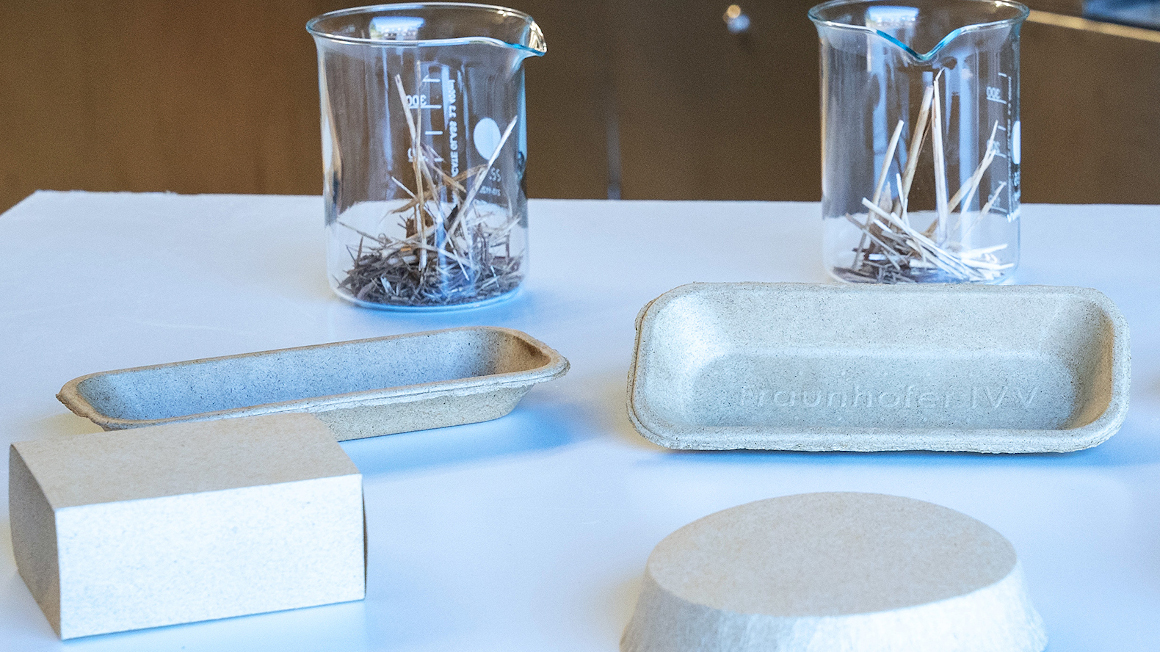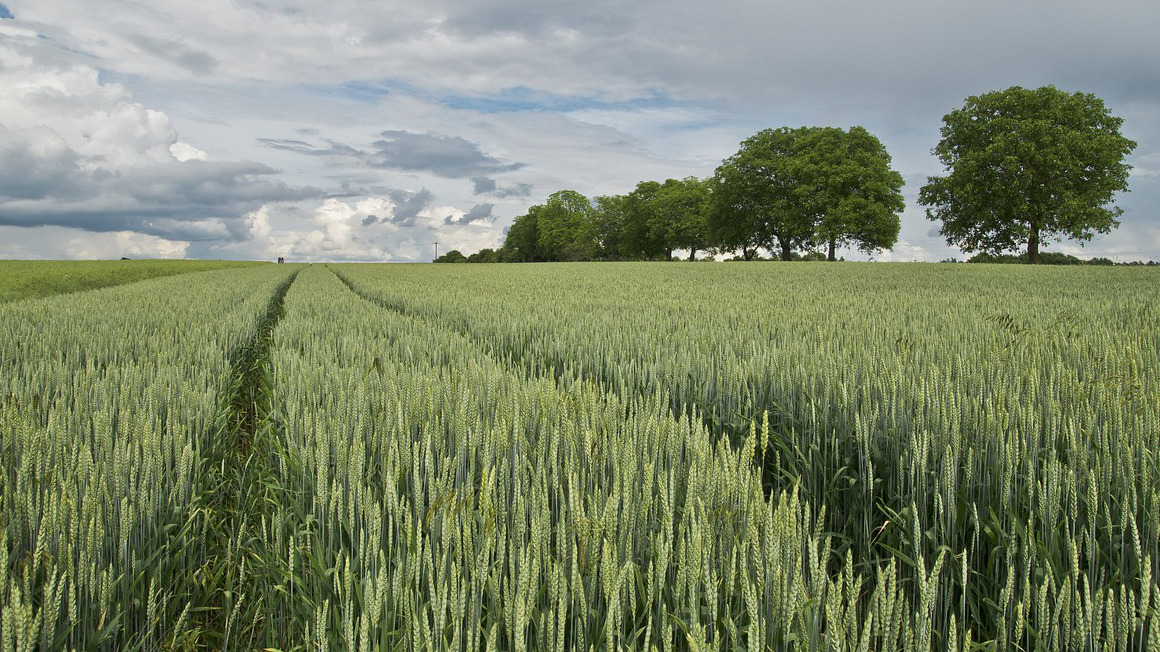Sustainable packaging made from reed
Fraunhofer researchers provide evidence that plants from paludiculture are also suitable for the production of packaging and can therefore replace wood as a raw material for paper production.

Wood is a versatile and sought-after raw material in Germany and has to be imported in large quantities due to the high demand. An alternative to wood could be plants from paludiculture, as peatland plants also contain important wood components such as cellulose and lignin. Reeds and peat mosses are already being used for building materials, animal feed and food. Now the paper industry could also benefit from peatland plants as a wood substitute. Researchers at the Fraunhofer Institute for Process Engineering and Packaging IVV have now provided proof of this.
New process for pulp production from peatland plants
As part of the PALUDI project, which was funded by the German Federal Ministry of Education and Research (BMBF) and others, a team led by project manager Fabian Kayatz investigated the potential of peatland plants such as reeds, sedges and reed canary grass for sustainable packaging and trialled corresponding production processes. A resource-saving process for pulp production was developed for this purpose.
One advantage of peat cultures is that they have a lower lignin content than wood. This means that fewer chemicals need to be used when breaking down the plant fibres in order to obtain the fibre quality required for packaging. ‘The less lignin is present, i.e. the natural adhesive in the plant cell walls, the lower the use of acids or alkalis during chemical pulping, for example, and the more stable a fibre network is formed,’ explains Fabian Kayatz.
According to the researcher, pulp made from these plant fibres also has better mechanical properties than pulp made from maize or bamboo. In addition, the lignin from non-lignifying plants is easier to extract and separate from the fibres, meaning that less energy is required for pulping processes than in conventional paper production from wood.
Less energy for pulping processes
The pulping process developed by the Fraunhofer researchers, which was tested on reeds and other paludicultures, used temperatures below 100°C, which is ‘up to 45% below the lowest values for chemical pulping processes’. According to the researchers, up to 83% lignin could be extracted from the raw material used. The pulp yield was therefore – depending on the parameter settings – up to 53%.
Jars and trays made from reed fibres
In tests, the Fraunhofer researchers were able to prove that the ‘flat, fibre-cast papers’ made from paludiculture produced in the project can be processed well and are suitable for processes such as folding, gluing and printing. The team reports that the papers also impressed in terms of tensile strength and elasticity as well as their water-repellent properties. The project has already produced the first stable paper jars and trays from reed fibres using fibre casting and deep-drawing processes, ‘without the use of additives’.
The results have still only been achieved on a laboratory scale. But the potential is becoming apparent: ‘After harvesting the peatland plants, the biomass obtained could be further processed on an industrial scale in the pulp factory. Pulp would then be produced there by breaking down the plant fibres,’ explains the project manager.
The PALUDI team wants to further optimise the fibre disintegration process before it is used in industry. The first step will be to produce packaging for the non-food sector, such as cosmetics, logistics and office materials.
Contribution to environmental and peatland protection
‘The potential of peatland plants for the production of innovative, bio-based packaging is huge, as we have been able to demonstrate with our successful development of resource-saving processes for pulp production,’ summarises Fabian Kayatz, emphasising that the continued existence of peatlands is also supported by rewetting agricultural land and using it for paludiculture.
bb


